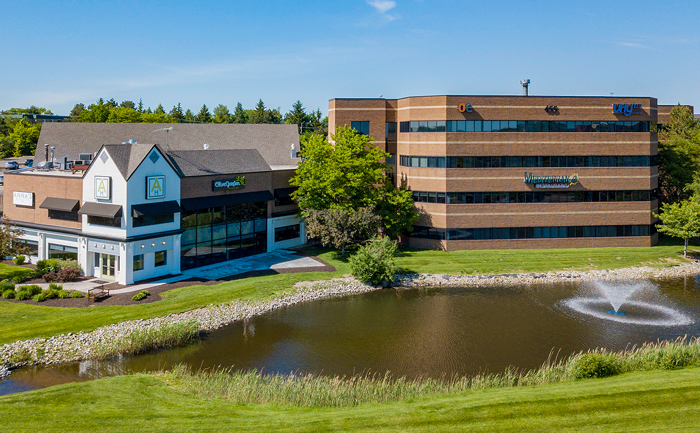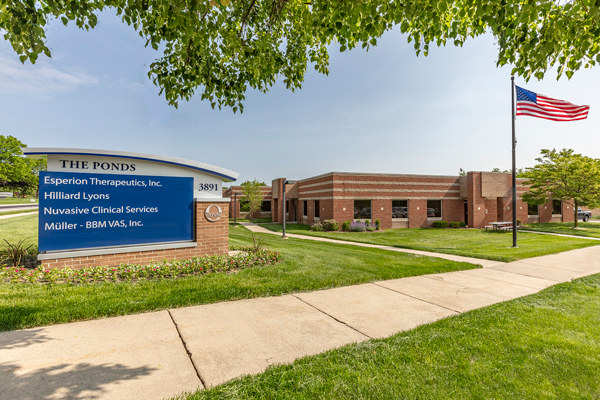Oxford is committed to diversity, equity and inclusion in our organization and the community.

10 Expert Tips for Choosing the Perfect Ann Arbor Commercial Property
Top 10 Tips for Finding An Ann Arbor Commercial Property
Choosing the perfect commercial property in Ann Arbor is an important decision that can significantly impact the success and growth of your business. With its thriving economy, vibrant community, and strategic location, Ann Arbor offers opportunities for businesses of all sizes. However, navigating the commercial real estate market can be challenging. This guide will provide you with 10 expert tips to help you make an informed decision. From understanding market trends to evaluating property amenities, we’ll cover the key factors that can ensure you select a space that meets your business needs and goals effectively.
Ann Arbor Commercial Real Estate – The Right Location at The Right Cost
Moving is a significant overhead, with considerable costs involved in relocation, requiring a well-planned decision. Finding the right location makes this cost worthwhile though. Proximity to customers or client-facing locations enhances accessibility and increases foot traffic, which is key for retail-facing businesses. The property’s convenience and desirability play a pivotal role in employee retention and attraction. Additionally, evaluating the available amenities can add considerable value to the overall business environment. Lastly, ensure that the property can be tailored to resonate with your customer-facing brand, as this cohesion can reinforce brand identity and customer engagement.
1. Understand Your Business Needs
Understanding your business needs begins with identifying your specific operational requirements and objectives. Often, business owners have preconceived notions about what their operations require, but these can be refined by talking through the needs with experts. This discussion can reveal overlooked aspects such as the need for conference rooms or collaborative spaces. Corporate guidelines might also dictate certain requirements that must be met. By vetting these needs, asking the right questions, and examining the space firsthand, expert teams like Oxford’s can provide valuable insights. Our construction team can help assess how many employees will occupy the space, the workflows involved, and how the space can support team collaboration. Then, don’t forget about scalability and flexibility for future growth — whether you’re planning to expand your workforce or awaiting significant milestones like FDA approval or additional funding.
Location, Location, Location
2. Understand the Importance of Property Location in Ann Arbor
The location of your commercial property in Ann Arbor is a critical factor that can greatly influence your business’s success. Properties situated downtown may offer synergy with nearby amenities, such as eateries, shops, and entertainment options, but often come with challenges like limited parking availability. It is important to weigh the benefits of being in a bustling downtown area against these logistical concerns. Accessibility is an additional element; properties located near bus routes or within walking distance from residential areas can be more convenient for both employees and customers. Proximity to key amenities not only enhances convenience but also contributes to a more pleasant working environment, potentially improving employee satisfaction and retention. Balancing these location-centric factors can help you choose a property that supports both your operational needs and strategic goals.
3. Evaluate Accessibility, Visibility, and Proximity to Target Market
 When selecting a commercial property in Ann Arbor, several critical factors must be evaluated to ensure the chosen location complements your business strategy. The first is accessibility; properties with easy access to major highways can facilitate smooth commutes for employees and clients. Visibility also plays a role, particularly for retail businesses—signage opportunities at a location can significantly enhance brand exposure and attract foot traffic. Additionally, consider the proximity to your target market; being close to areas with a high concentration of your ideal customers can streamline marketing efforts and boost sales. Another aspect is proximity to a talent pool; properties located near regions where your desired workforce resides can help in talent attraction and retention. Balancing these factors effectively can contribute to a more coherent and thriving business environment.
When selecting a commercial property in Ann Arbor, several critical factors must be evaluated to ensure the chosen location complements your business strategy. The first is accessibility; properties with easy access to major highways can facilitate smooth commutes for employees and clients. Visibility also plays a role, particularly for retail businesses—signage opportunities at a location can significantly enhance brand exposure and attract foot traffic. Additionally, consider the proximity to your target market; being close to areas with a high concentration of your ideal customers can streamline marketing efforts and boost sales. Another aspect is proximity to a talent pool; properties located near regions where your desired workforce resides can help in talent attraction and retention. Balancing these factors effectively can contribute to a more coherent and thriving business environment.
4. Navigate Zoning Laws and Regulations
Understanding and navigating zoning laws and regulations can be tricky when selecting a commercial property in Ann Arbor. Different zones have specific regulations that govern permitted uses, and in some cases, put restrictions on certain activities. For example, Planned Urban Development (PUD) zones may allow for a mixture of uses but come with their own set of compliance requirements. Similarly, specialized businesses like labs and research facilities may require light industrial or limited light industrial zoning to operate legally. Medical and retail spaces are also subject to stringent regulations that must be carefully reviewed. With a thorough understanding of these zoning laws, businesses can avoid costly compliance issues and ensure that their chosen property aligns with both operational needs and legal requirements. Our team of experts is well-versed in this complex landscape and can assist you in working through these intricacies to find the ideal property for your business.
Budgeting and Financial Considerations
5. Understand Your Budget
When budgeting for the purchase or lease of a commercial property, it is crucial to establish a realistic financial framework that accounts for both immediate and long-term needs. Begin by thoroughly understanding your organization’s sources of funding and financial limits. Reflect on how additional space might influence utility, such as the cost-benefit of acquiring an extra 1,000 square feet and its potential to accommodate additional full-time employees (FTEs). Determine whether investing in a high-end building with abundant amenities will justify the expected revenue increase compared to opting for a more economical structure. It is vital to comprehend total occupancy costs, which include not just rent or mortgage payments but also utilities, maintenance, insurance, and taxes. Familiarizing yourself with general real estate terminology can further facilitate informed decision-making. By aligning your budget with these considerations, you can narrow down property choices that not only meet spatial requirements but also support financial sustainability.
6. Assess Additional Expenses
 When budgeting for a commercial property, it is essential to account for various additional expenses beyond the basic rent or lease payments. This includes taxes, maintenance, and utilities, which can collectively represent a significant portion of the total occupancy costs. Janitorial services are another aspect to consider, ensuring that the property remains clean and functional for daily operations. Taxes and insurance specifically related to the property can vary widely depending on the location and type of business conducted. Buildout costs, which encompass any construction or modifications required to make the space suitable for your business needs, are becoming increasingly significant given the rising costs of construction materials. Fixtures, furniture, equipment, and IT infrastructure (FFEIT) are critical investments that can influence both the functionality and aesthetic appeal of your workspace. Understanding the economics of lease terms is also vital; typically, longer leases and better credit profiles can lead to more favorable conditions, including landlord-provided modifications. By meticulously assessing these additional expenses, businesses can create a comprehensive budget that supports their long-term operational success.
When budgeting for a commercial property, it is essential to account for various additional expenses beyond the basic rent or lease payments. This includes taxes, maintenance, and utilities, which can collectively represent a significant portion of the total occupancy costs. Janitorial services are another aspect to consider, ensuring that the property remains clean and functional for daily operations. Taxes and insurance specifically related to the property can vary widely depending on the location and type of business conducted. Buildout costs, which encompass any construction or modifications required to make the space suitable for your business needs, are becoming increasingly significant given the rising costs of construction materials. Fixtures, furniture, equipment, and IT infrastructure (FFEIT) are critical investments that can influence both the functionality and aesthetic appeal of your workspace. Understanding the economics of lease terms is also vital; typically, longer leases and better credit profiles can lead to more favorable conditions, including landlord-provided modifications. By meticulously assessing these additional expenses, businesses can create a comprehensive budget that supports their long-term operational success.
7. Financial Planning for ROI and Cost-Benefit Analysis
Effective financial planning for a commercial property involves a thorough return on investment (ROI) and cost-benefit analysis, where various trade-offs must be carefully evaluated. Consider factors like parking availability, which can significantly impact customer convenience and employee satisfaction, ultimately affecting business performance. Deciding between locating on the first floor or upstairs, as well as choosing between rural and urban areas, requires a nuanced understanding of how these choices influence both costs and potential revenue. It’s crucial to make reasonable and realistic assumptions about future sales, operating expenses, and growth potential based on market research and historical data. By systematically analyzing these factors, businesses can ensure that their investment not only aligns with current financial capabilities but also fosters long-term growth and profitability.
8. Work with a Knowledgeable Commercial Real Estate Professional
Partnering with experienced local real estate professionals is the first step in securing the ideal commercial property for your business. Finding experienced, locally-based commercial real estate professionals with a proven track record can make or break a deal. Oxford Companies has successfully placed hundreds of businesses, organizations, and partners into commercial spaces with over 100 transactions per year and over $750 million in transactions, bringing unparalleled expertise to the table. Our deep knowledge of Ann Arbor’s market, including its nuances and intricacies, can provide invaluable guidance. When selecting a partner, seek recommendations and thoroughly check their track record. Look for reputable and experienced professionals by reading reviews and talking to other tenants who have worked with them. Understanding their history and success in Ann Arbor can give you confidence in their ability to navigate the local market and find a property that meets your specific needs.
9. Legal and Regulatory Due Diligence
Conducting thorough legal and regulatory due diligence is an important step in securing a commercial property, ensuring that potential risks are minimized and compliance is maintained. Begin by performing comprehensive legal checks to confirm the property’s zoning compliance, as well as any restrictions or requirements that may impact your business operations. Engaging a skilled commercial real estate attorney is advisable to help navigate the complexities of lease agreements or purchase contracts, providing clarity on the distinctions between Letters of Intent (LOIs) and binding agreements, as well as key terms such as delivery periods. It’s also essential to ensure that your prospective property complies with all local regulations and obtains the necessary building department permits. Partnering with experts who have a deep understanding of these legal intricacies can safeguard your investment and pave the way for a smooth acquisition process.
10. Future Market Trends and Property Value
To make a well-informed commercial real estate investment, you’ll want to stay aware of current market trends in Ann Arbor. Our expertise reveals that the retail sector is experiencing significant growth, providing lucrative opportunities for businesses in that industry. Hotels are seeing a resurgence, suggesting a strong rebound in the hospitality sector. The office market is evolving, with many organizations opting for smaller, higher-quality, more ideally-located spaces for their teams to gather and collaborate in this new phase of remote and hybrid work. Construction costs have risen dramatically, which could impact new developments and renovations. Understanding these dynamics is key to assessing property value and making strategic decisions that align with evolving market conditions.
Worth Considering – Environmental Considerations and Sustainability
When evaluating commercial properties, it is vital to consider environmental considerations and sustainability initiatives. Investing in energy-efficient and eco-friendly options, such as LED lighting, can lead to significant cost savings over time. Although some of the most sustainable technologies may come with a higher upfront cost, they often pay for themselves through reduced energy bills and lower maintenance expenses. Sustainability initiatives resonate strongly with younger generations, who prioritize eco-friendly practices and may influence future business decisions. Evaluating the potential cost savings and long-term benefits of these measures can help ensure that your investment aligns with modern environmental standards and meets the expectations of future employees and clients.
Final Decision Making and Negotiation
The final stage in securing a commercial property involves reviewing and comparing the shortlisted properties to determine which best aligns with your business goals and requirements. A comprehensive evaluation should guide your decision-making process, enabling you to act swiftly and decisively. Remember, time is of the essence, and delays can potentially jeopardize promising opportunities. By thoroughly assessing all aspects and negotiating astutely, you can secure a property that not only fulfills your immediate needs but also supports your long-term business objectives.
Commercial Real Estate in Ann Arbor – Final Thoughts
In summary, securing a commercial property requires thorough research and strategic decision-making at each stage of the process. From understanding legal and zoning requirements to staying informed on market trends and evaluating environmental considerations, every detail matters. Engaging with professionals who can provide expertise and guidance significantly increases the likelihood of a successful property acquisition or lease. Remember to act swiftly and make informed decisions based on comprehensive evaluations to ensure that your investment supports both your immediate needs and long-term business objectives. For those ready to take the next step, visit our Commercial Property Search or Contact Us Today to explore available opportunities.

